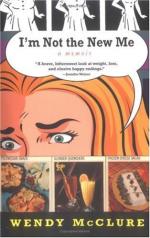[Illustration: ABBOT ACADEMY, ANDOVER, MASSACHUSETTS.
From a photograph by Geo. H. Leek, Lawrence, Massachusetts, taken in 1864.]
Afterwards, I wrote with a distinct purpose, and, I think, quite steadily. I know that longer stories went, soon and often, to the old magazine, which never sent them back; and to which I am glad to pay the tribute of a gratitude that I have never outgrown. There was nothing of the stuff that heroines and geniuses are made of in a shy and self-distrustful girl who had no faith in her own capabilities, and, indeed, at that time, the smallest possible amount of interest in the subject.
It may be a humiliating fact, but it is the truth, that had my first story been refused, or even the second or the third, I should have written no more.
For the opinion of important editors, and for the sacredness of market value in literary wares, as well as in professorships or cotton cloth, I had a kind of respect at which I sometimes wonder; for I do not recall that it was ever distinctly taught me. But, assuredly, if nobody had cared for my stories enough to print them, I should have been the last person to differ from the ruling opinion, and should have bought at Warren Draper’s old Andover book-store no more cheap printer’s paper on which to inscribe the girlish handwriting (with the pointed letters and the big capitals) which my father, with patient pains, had caused to be taught me by a queer old travelling-master with an idea. Professor Phelps, by the way, had an exquisite chirography, which none of his children, to his evident disappointment, inherited.
[Illustration: “THE STONE BUILDING,” PHILLIPS ACADEMY, ANDOVER, MASSACHUSETTS.
This building was burned in 1864 or 1865.]
But the editor of “Harper’s” took everything I sent him; so the pointed letters and the large capitals continued to flow towards his desk.
Long after I had achieved whatever success has been given me, this magazine returned me one of my stories—it was the only one in a lifetime. I think the Editor then in power called it too tragic, or too something; it came out forthwith in the columns of another magazine that did not agree with him, and was afterwards issued, I think, in some sort of “classic” series of little books.
I was a little sorry, I know, at the time, for I had the most superstitious attachment for the magazine that, when “I was a stranger, took me in;” but it was probably necessary to break the record in this, as in all other forms of human happiness.




